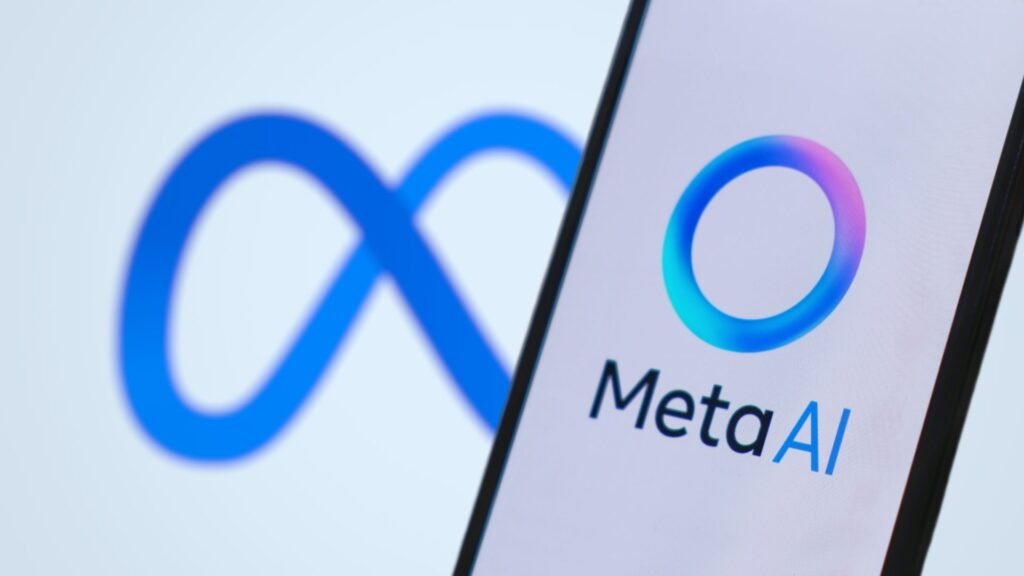
Meta Platforms Inc., the parent company of Facebook, Instagram, and WhatsApp, has once again captured Wall Street’s attention—this time with a powerful blend of artificial intelligence innovation and advertising growth. On July 30, 2025, Meta’s shares surged more than 8% following its second-quarter earnings report, which revealed that AI-fueled ad sales had significantly outpaced the company’s rising capital expenditures.
This performance underscores a broader trend in the tech industry: companies that successfully harness generative AI are reaping substantial rewards, even as they invest heavily in infrastructure to support future growth.
AI as the Engine of Meta’s Advertising Renaissance
Meta’s CEO Mark Zuckerberg emphasized that the company’s strategic focus on AI is paying off. The company has integrated generative AI tools across its advertising platforms, enabling businesses to create more personalized, targeted, and effective ad campaigns. These tools have not only improved ad performance but also attracted new advertisers seeking to leverage AI for better customer engagement.
“Our AI investments are driving real business results,” Zuckerberg said during the earnings call. “Advertisers are seeing higher returns, and users are experiencing more relevant content. It’s a win-win.”
Meta’s advertising revenue for Q2 2025 rose by 14% year-over-year, reaching $38.2 billion. This growth was largely attributed to the company’s AI-powered ad delivery systems, which optimize placement and targeting in real time. Small and medium-sized businesses, in particular, have embraced these tools, finding them more accessible and cost-effective than traditional ad solutions.
Capital Spending: A Necessary Price for Innovation
While Meta’s revenue growth was impressive, the company’s capital expenditures also drew attention. Meta spent $12.5 billion in Q2 alone, a 22% increase from the previous quarter. Much of this spending went toward expanding its data center infrastructure, acquiring high-performance computing hardware, and developing proprietary AI models.
Zuckerberg acknowledged the steep costs but framed them as essential investments. “We’re building the foundation for the next generation of AI applications,” he said. “This isn’t just about ads—it’s about transforming how people interact with technology.”
Meta’s Reality Labs division, which oversees its virtual and augmented reality initiatives, also contributed to the capital outlay. The company is preparing to launch new mixed-reality devices later this year, and AI will play a central role in powering immersive experiences and user interfaces.
Investor Confidence Surges
Despite the high spending, investors responded positively to Meta’s earnings report. The company’s stock closed at $412.76, up 8.3% from the previous day. Analysts cited strong revenue growth, robust user engagement, and a clear roadmap for AI integration as key drivers of investor optimism.
“Meta is showing that it can monetize AI effectively,” said tech analyst Priya Desai of Global Equity Research. “They’re not just experimenting—they’re executing.”
Desai also noted that Meta’s ability to balance innovation with profitability sets it apart from competitors. “Many tech firms are pouring money into AI without a clear path to revenue. Meta is demonstrating that AI can be a growth engine, not just a research project.”
User Engagement and Platform Growth
Meta’s user metrics also impressed. Daily active users across its family of apps reached 3.4 billion, up 6% year-over-year. Instagram Reels and Facebook Stories continue to drive engagement, with AI-powered content recommendations keeping users hooked.
The company reported that time spent on its platforms increased by 9% compared to the same period last year. This growth was attributed to improved content personalization, which Meta’s AI systems deliver by analyzing user behavior and preferences.
“We’re seeing deeper engagement across all demographics,” said Meta COO Javier Olivan. “AI is helping us understand what users want and deliver it more effectively.”
Challenges and Controversies
Despite its strong performance, Meta faces ongoing scrutiny over data privacy, content moderation, and the ethical implications of AI. Regulators in the European Union and the United States are examining how Meta’s AI systems collect and use personal data, particularly in advertising.
Zuckerberg addressed these concerns during the earnings call, stating that Meta is committed to transparency and responsible AI development. “We’re working with regulators and experts to ensure our AI systems are safe, fair, and respectful of user privacy,” he said.
Meta has also faced criticism over its handling of misinformation and harmful content. While AI tools have improved moderation capabilities, critics argue that automated systems can still miss nuanced or context-specific violations.
Competitive Landscape
Meta’s success with AI-driven advertising puts pressure on rivals like Google, Amazon, and TikTok to accelerate their own AI initiatives. Google has launched new AI features in its ad platform, while Amazon is experimenting with generative AI for product recommendations and customer service.
TikTok, owned by ByteDance, remains a formidable competitor in the short-form video space. However, Meta’s integration of AI into Reels and Stories has helped it retain user attention and advertiser interest.
“Meta is leading the pack in AI monetization,” said Desai. “Others are playing catch-up.”
Looking Ahead: AI Beyond Advertising
While advertising remains Meta’s primary revenue stream, the company is exploring new applications for AI. These include AI-powered customer support, content creation tools for influencers, and productivity features for business users.
Meta is also investing in AI research through its FAIR (Facebook AI Research) division, which focuses on long-term innovations such as natural language understanding, computer vision, and robotics.
“We believe AI will redefine how people work, learn, and connect,” Zuckerberg said. “We’re building tools that empower individuals and businesses to do more with less.”















